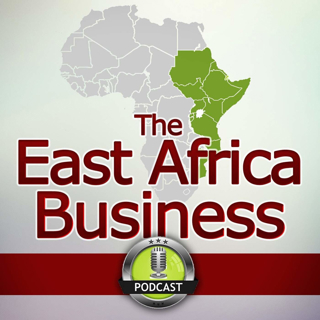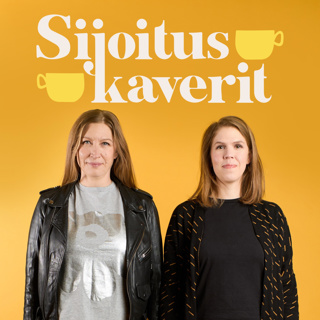
No credit card to drive! How City Drive Hire have opened up the Zambian car hire market
The landlocked country is just south of Malawi, Tanzania and DRC, and has the great Zambezi river as it's border with Zimbabwe, Botswana and Namibia.Economically there's a lot of copper and mining exports, and my sense is that the development of local services is most in line with Uganda or Tanzania, rather than Kenya (more developed) or Rwanda (less developed).In this episode, I speak with Greg, who runs a car hire company from the capital Lusaka.It started 10 years ago and now has operations across the country.I really enjoy hearing how businesses in the region adapt traditional business models to provide a superior service to existing alternatives.Yes, there's a lot of excitement in developing off-grid solar solutions using mobile money, but there's also a lot of merit in running a business with professional service that an emerging economy is going to demand.In this case, good quality and reliable car rentals.Greg and I discuss the company's formation, how they modify their cars for Zambian roads (such as switching out the Japanese cold weather tyres), how their fleet is now over 500 cars through an innovative leasing programme, and how the payback on vehicles they purchase, is just 4-6 months.There's also lots of good advice from Greg about building a company organically and strategically thinking about where you can be valuable to clients.As always, you can head to www.theeastafricabusinesspodcast.com to learn more about the company featured.READ MORE AT:https://theeastafricabusinesspodcast.com/2019/10/24/no-credit-card-to-drive-how-city-drive-hire-have-opened-up-the-zambian-car-hire-market
24 Loka 201945min

Moringa revisited: catching up with Audrey Cheng on the coding school's international expansion
In this episode, I catch up with Audrey Cheng, the founder of Moringa School.We first did an interview in October of 2016, and so it had been over 2.5 years since we last spoke.The initial episode is called "Coding Schools", and so be sure to scroll back through the archives to give it a listen, if you're interested.Moringa School is still going strong, and now has a presence in Rwanda, as well as having taught over 1,500 students.The fundamentals remain the same - providing a relevant skill set to people entering the workforce in emerging markets - and we chat about how the company has evolved recently.This includes expansion into different fields from just coding (such as data science), greater outreach (such as programmes for low-income students), partnerships they've brokered with international agencies, and how they are at the stage of codifying their culture for the next phase of expansion.We did this interview in a hotel lobby and so at times, you might hear some background noise from other tables.I hope, however, that this doesn't detract from what is a very interesting interview from the founder of a company clearly on an upward trajectory.READ MORE AT:https://theeastafricabusinesspodcast.com/2019/10/17/moringa-revisited-catching-up-with-audrey-cheng-on-the-coding-schools-international-expansion/
17 Loka 201936min

How Brexit is affecting Kenya's role in the global flower market, with Chris Kulei from Sian Roses
This week we're speaking with a big player in one of Kenya's largest industries: flower farming.Horticulture is one of the biggest sectors in the country's economy, and 60% of all the world's roses are grown in Kenya.This is for a number of reasons, which I discuss with Director of Sian Roses, Chris Kulei.Kenya has a number of natural features such as high altitude, and access to water which, along with low labour costs means they can produce roses for a tenth of the price of elsewhere such as Holland and Israel.Before our interview, Chris took me on a tour of their 45 hectare farm just out of Nairobi going from the initial grafting of new roses, through the various stages before being picked, packed and put on a pallet for export.You can see some pictures of this by heading to the show notes on www.theeastafricabusinesspodcast.comThe overarching concept with growing flowers is that it's a volume game.The global market, which is centered in Holland, is incredibly efficient and means margins for flowers are very thin, and millions of stems are traded every day.As such, companies like Sian Roses need big capex and efficiency savings to stay competitive. Indeed, they currently focus just on roses in order to maintain a high quality.We discuss the many players in the global supply chain, how very often they'll get to name a new rose, trends in the industry towards sustainability, and how Brexit is causing all kinds of confusion at the auction house.There's so much interesting stuff here I really hope you enjoy. READ MORE AT:https://theeastafricabusinesspodcast.com/2019/10/10/how-brexit-is-affecting-kenyas-role-in-the-global-flower-market-with-chris-kulei-from-sian-roses/
10 Loka 20191h 14min

A tech success story. How Africa's Talking equips African software developers with APIs
In this episode I speak with Bilha Ndirangu who is the CEO of one of Africa's most successful tech start ups.Started in Kenya nearly 10 years ago, Africa's Talking now serves over 5000 customers and has operations in 18 African countries. Most of this growth has been self-generated, though last year they took on investment of around $10m to fuel the company's expansion.For those who have not worked in the tech space, an API (or Application Program Interface) is a way that software developers connect up different bits of technology.Without APIs things get tricky because if, for example, you want to build an app that sends an SMS to users you need to negotiate directly with the telco to allow them to send messages on your behalf.This comes with heaps of technical complexity (and sometimes regulation to conform to) which mean it's incredibly painful to do.Africa's Talking takes away all of that complexity by doing the hard work on behalf on developers.They go across Africa and complete of the headache stuff of integrating with telcos and banks, and then allow developers to seamlessly plug in so their apps/ businesses can easily begin accepting payments and sending SMSes.It's a great business model which gets better with the network effects of them expanding to more countries.In this episode Bilha and I talk about the company's formation, how it's changed upon its recent growth spurt, and how the bigger the company gets, the more it becomes defensible against outside competition.I really hope you enjoy this episode with Bilha.READ MORE AT:https://theeastafricabusinesspodcast.com/2019/10/03/a-sexy-tech-success-story-how-africa's-talking-equips-african-software-developers-with-apis/
3 Loka 201941min

How many eggs can you fit in an Uber? A Nairobi egg dealer on overcoming micro-business challenges
One of the nice things about having a podcast is that it allows you to have conversations with people you wouldn't otherwise get around to.In this episode I sit down with John, the man who I buy my eggs from in Kenya.In Swahili, "mayai" means "eggs" and so his customers know him as John Mayai.John works from an apartment building in Nairobi, and stores thousands of eggs in the car park to then sell to individuals and small businesses wanting to buy them in multiples of 30.We talk about how he started the business buying and selling 5 trays of eggs, and is now up to 80, how cold weather affects the price of eggs, and the main challenges that come from expanding the business.Now, the big limiting factor John mentioned was the ability to buy more eggs and transport them back to the car park to then sell to local businesses. "There's always demand for eggs" as John put it, so it's just a case of increasing the supply.Immediately after recording this episode I went for lunch my friend Raaj and we got chatting about how we could help out John to expand his business.Long story short, the next day we were in a car with him driving up to a large egg market on the outskirts of Nairobi, returning a few hours later with nearly 5000 eggs. I made some recordings from the trip, and so who knows, perhaps one day it'll get made into an episode.Anyway for now, there's lots of interesting insights from John and I's conversation and so I hope you enjoy this episode.John's business is representative of how a lot of people in Kenya work and live - buying and selling products and at a low margin in order to fund other areas of their life, such as school fees for the children.I hope you find it enlightening.READ MORE AT:https://theeastafricabusinesspodcast.com/2019/09/26/how-many-eggs-can-you-fit-in-an-uber-overcoming-micro-business-challenges-with-john-a-nairobi-egg-dealer/
26 Syys 201928min

How a Kenyan couple captured the Japanese market in Kenya, with Wangari Wachira
Near to where I live in Nairobi is a Japanese cafe.Whenever I've been the food has been delicious, and the small place is full of people from Japan, enjoying Ramen bowls and cold imported beer.I thought it would be interesting to interview the owner to learn about how the business started.It turns out that the owner Wangari and her husband have cornered down a niche market in the city.Both were born and raised in Kenya, independently decided to learn Japanese as kids and ended up getting married after a mutual friend introduced them so they could connect on the shared love for JapanToday they run a diverse portfolio of businesses to serve Japanese consumers in Kenya.In the interview we discuss how their businesses came to be, the interplay of owning a safari company, supermarket, cafe and farm all geared towards the Japanese market, and practicalities of, for example, selling Bento boxes in Nairobi.It's a really interesting example of finding a business area that's aligned with your personal interests and skill set, and then occupying that niche to very high standard.READ MORE AT:https://theeastafricabusinesspodcast.com/2019/09/19/how-a-kenyan-couple-captured-the-japanese-market-in-kenya-with-wangari-wachira/
19 Syys 201951min

Why did the home of running not make running shoes? Nava the co-founder of Enda Running explains
If you think about brands that different countries have, most people probably have two strong associations for Kenya.Safari and running.The safari industry is well established, with innumerate tour companies able to take you on your dream holiday seeing the Big Five.Running, however, is an industry which is much less developed.In fact, until Enda, there were no running shoes made in arguably the home of running!As we discuss in this episode, Nava, the co-founder of Enda Sportswear wanted a way to promote sports in her country and settled on building shoes as the biggest impact way to do so.In the process, Enda has become a vehicle for promoting local industry, with all of the assembly taking place in Kenya, and many parts, such as shoelaces, being produced in the region too.Nava and I talk about all sides of the business, including where and how the shoes are currently sold, the global (ahem) footprint that the brand has, and the practicalities of setting up production of high-end footwear in East Africa.The Enda offices are in the same place as a number of artist workshops. We're doing the interview outside, and so there may be a bit of background noise from people moving stuff, as well as some chickens who wandered over at some point.READ MORE AT:https://theeastafricabusinesspodcast.com/2019/09/12/why-did-the-home-of-running-not-make-running-shoes-nava-the-co-founder-of-enda-running-explains-their-story/
12 Syys 201952min

Fortune at the Bottom of the Pyramid, why SunCulture can profitably sell to smallholder farmers
If you've been following The East Africa Business Podcast for a while, you might notice that most episodes are around the 30-40 minute mark.Whilst that was the intention here, in this episode Samir and I end up chatting for well over an hour.The reason being is that (to me at least) there's just so much interesting stuff to talk about the business he's running.Sunculture exists to improve productivity amongst smallholder farmers, and does so through a variety of services including solar irrigation pumps and financing all run on a state-of-the-art software platform.We talk about how and why the company was formed, why Samir believes that, unlike the US, there will always be smallholder farmers in this part of the world, and how Sunculture's dream team operates, in part motivated by Samir's monthly emoji email.A big part of the Sunculture thesis on development is aligned with the discussion I had with Conrad Whitaker. To learn more, search for the episode on the Distributed Economy.We do the interview in the garden of the lovely Sunculture offices and so there may some background noises (including a nearby scuffle between a dog and monkey) which I hope doesn't detract from what is a really fun and information packed episode.We sometimes go a bit off-piste, including how Samir is hoping to one day reach out to the Ohio band that share Sun Culture's name. We sample one of their tracks at the end of the episode, if you're interested.READ MORE AT: https://theeastafricabusinesspodcast.com/2019/09/05/fortune-at-the-bottom-of-the-pyramid,-how-and-why-sunculture-can-profitably-service-smallholder-farmers-at-scale/
5 Syys 20191h 13min





















